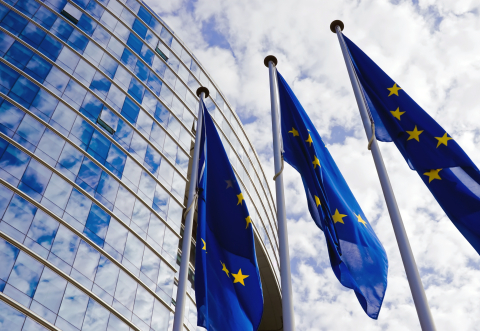EFAMA welcomes the opportunity to respond to the EC’s targeted consultation on the EU’s central clearing framework. We are pleased to find in this consultation document a fair reflection of the complexity of the CCP ecosystem and consistency with the issues raised in previous dialogues held with the European Commission. In that same spirit, we hope in our response to provide feedback that resonates with the EC’s broader policy objectives while minimizing systemic risk and undue harm to our industry.
European Market Infrastructures regulation (EMIR)
In 2012, following the 2008 financial crisis, the EU adopted the European Market Infrastructures regulation (EMIR) with the laudable objectives of increasing transparency in the OTC derivatives markets, to reduce the counterparty risk of derivatives contracts and to reduce operational risks associated with derivatives trading.
EFAMA welcomes the improvements recently brought by the EMIR Refit: It redefines the obligations imposed on derivatives users, recognising and solving some issues previously existing in EMIR, such as the disproportionate regulatory burden imposed on the least risky counterparties. We also advocate for a better alignment between EMIR and MiFIR, especially with regards to the clearing and trading obligations.
EU Com targeted consultation on the review of the central clearing framework in the EU
EFAMA views and recommendations on ESMA's consultation on the review of EMIR RTS on APC margin measures
The European Fund and Asset Management Association (EFAMA) welcomes the opportunity to respond to this important review of RTS 153/2013 and accompanying guidelines, in light of the procyclicality witnessed during the peak volatility of the Covid crisis. European CCPs already have standard anti-procyclicality tools in their rulebooks and this did lead to less volatile moves in margin in Europe versus other jurisdictions.
ESMA consultation on the review of clearing thresholds under EMIR
For asset managers the main issue continues to be the reclassification of ETDs as OTCs as a result of the non-equivalence of UK regulated markets. While we understand that a review is legally mandated at this point in time, we do not see value in recalibrating the various thresholds or making changes to the calculation methodologies unless these are in the two areas we define below. Our main concern revolves around the fact that changes would carry significant compliance costs while making little impact on the population of counterparties and notional captured by the thresholds.
Active Accounts - Joint Trade Association Statement
EFAMA, BFPI Ireland, EACB, FIA EPTA, Federation of the Dutch Pension Funds,
Finance Denmark, Nordic Securities Association, AIMA, ICI Global, FIA and ISDA support positive
incentives to further enhance the attractiveness of EU clearing and EU Capital Markets, including
many of the measures proposed in EMIR 3.0. (read more)
EMIR 3.0: Detailed views on active accounts
EFAMA offers a detailed view on the active accounts proposal in this paper. Costs to the end investor are broken down into two main buckets i) operational build-out and ii) in nominal terms the much larger impact of loss of netting efficiencies. Potential impacts on financial stability are also examined, with a focus on the widening basis which will result from large volumes of one-directional flows onto an EU-CCP. The impact on margins and procyclicality are also studied. The analysis points to increased liquidity risk for
Mandated levels of EU Clearing run counter to competitive and efficient clearing systems
EFAMA appreciates the opportunity to comment on the EMIR 3.0 proposal reforming the clearing framework in the EU. We share the objectives of this review which seek to ensure financial stability in the EU, and the well-functioning of the existing central clearing framework. We understand the objective to reduce excessive exposure to substantially systemic CCPs over time, though we maintain that any regulatory measures should be proportionate to the regulatory rationale, and should not unduly harm market participants.






























